Social Emotional Learning Teaching Resources
Are you on the hunt for social emotional learning activities, printable PDFs, and more to bring SEL to life in your primary lessons this school year? The list of academic benefits of SEL instruction is a mile long, and the Teach Starter teacher team has created a robust collection of social and emotional learning resources made with teachers – and your students — in mind.
We've made planning your social-emotional learning lessons simple with printable SEL worksheets and digital social and emotional activities designed specifically for the needs of primary school students. Each resource in this collection has undergone rigorous review by the expert teachers on our team to make sure you'll be comfortable passing them out in the classroom or sending them home in a student's bag.
Pardon us if we're sharing something you already know (feel free to skip right to the social emotional learning activities!), but if you're new to incorporating SEL into your classroom, you may need a quick refresher! Read on for a guide from our teacher team!
What Is Social-Emotional Learning?
The most common social-emotional learning — or social and emotional learning — definition describes SEL as 'the process through which all young people and adults acquire and apply the knowledge, skills, and attitudes to develop healthy identities, manage emotions and achieve personal and collective goals, feel and show empathy for others, establish and maintain supportive relationships, and make responsible and caring decisions.'
It's a bit of a mouthful, but essentially social and emotional learning covers five core competencies:
- Self-Awareness
- Self-Management
- Social Awareness
- Relationship Skills
- Responsible Decision Making

Where Did Social Emotional Learning Come From?
Teachers have been teaching many of the skills that now fall under the social and emotional learning curriculum for centuries. It's always been our goal to help shape little minds to be caring, productive, and engaged citizens.
But the roots of what we now consider SEL can be traced back to a project in the New Haven, Connecticut schools in the United States where school administrators worked with Yale University researchers, parents, mental health workers and teachers to refocus not just the school's academic programs but their social ones too. The project started in the 1960s at two schools considered 'underperforming,' and by the 1980s, these same schools had academic scores that were at the top of American school rankings.
From there, the K-12 New Haven Social Development program was born, establishing a framework for incorporating social and emotional learning into the curriculum. Meanwhile, the non-profit Collaborative for Academic, Social, and Emotional Learning (CASEL) was born in 1994, helping to really bring the term 'social and emotional learning' into the zeitgeist.
CASEL was born out of the New Haven projects and helped shape the official definition of SEL listed above in 1997. It now works to expand SEL in schools around the globe.
Why Is Social-Emotional Learning Important?
Not sure you have time to fit all of this in alongside the standards that you're preparing students to meet? A solid social and emotional learning curriculum will help students with everything from managing emotions and developing coping skills to setting positive goals, engaging in positive relationships and solving problems effectively — all important competencies for your classroom.
The importance of SEL is hard to overstate, but here are a few core benefits:
- Promote mental health and well-being — Teaching social and emotional lessons in the classroom can help students develop the skills they need to manage their emotions, build positive relationships and cope with stress and challenges. It's a small step toward better mental health for all.
- Improve academic performance — There's strong research showing that students who have strong social and emotional skills are more likely to be engaged in learning and perform better academically.
- Create a positive classroom culture — Teaching social and emotional lessons can help create the kind of classroom culture where students feel safe, respected and supported — exactly what we all strive for!
- Prepare students for life after school — Social and emotional skills are essential for success beyond the classroom, be it at home in the immediate future or in uni or the workforce. Teaching these skills helps students be better equipped to handle the challenges they will face.
- Address specific social and emotional needs — Teaching social and emotional lessons can help address students' specific needs, such as building self-esteem, managing emotions and developing empathy for others. This can also help to create a more inclusive and equitable classroom where all students feel respected and valued. It's also good for your overall classroom management.

How to Teach Social and Emotional Lessons
There's little question that there's value in social and emotional learning, but how do you actually teach it? There's no simple answer here, as the exact methodology will differ based on year level, individual student needs and even your classroom dynamics!
That said, here are some strategies from our teacher team to keep in mind as you consider how you're incorporating the components of SEL in your instruction:
- Modelling — This is likely no surprise — we are our students' role models in the classroom for so much. Don't underestimate the value of your own active listening, displays of empathy and self-regulation, and other skills that are essential for your students' social and emotional development.
- Classroom Culture — Establishing a safe and supportive learning environment where students feel respected, valued and empowered goes a long way. Fostering a sense of community, promoting positive communication and encouraging collaboration and teamwork are all helping kids build their SEL quotient!
- Integration — Of course, you can (and should) have explicit instruction on SEL, but you can also incorporate SEL concepts into your core subject lessons. Discuss emotions related to a character in a book or working on group projects that require collaboration and communication. If you're teaching maths, emphasise the importance of perseverance and problem-solving skills. Teaching HAAS? Discuss empathy and the ability to understand different perspectives. It all comes together!
- Plus Plan
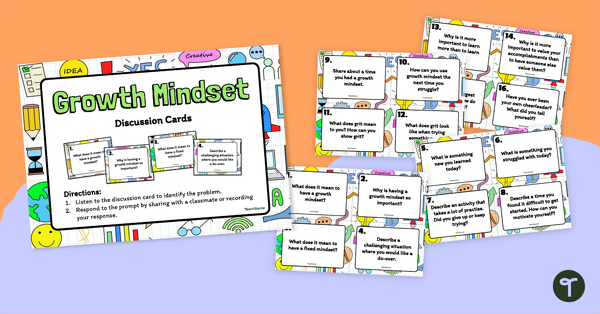
Growth Mindset Discussion Cards
Explore growth mindset with your students with this set of discussion cards.
- Plus Plan
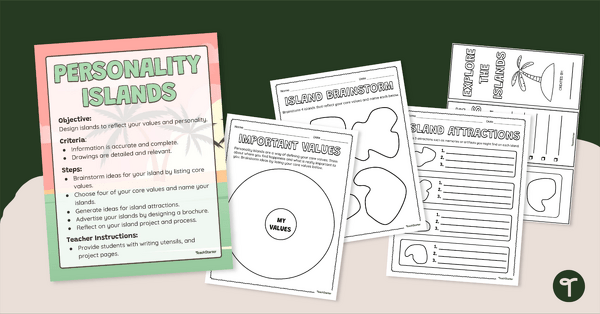
Personality And Values Activity (Personality Islands Project)
Explore your students’ personalities and values with this fun personality island project.
- Plus Plan
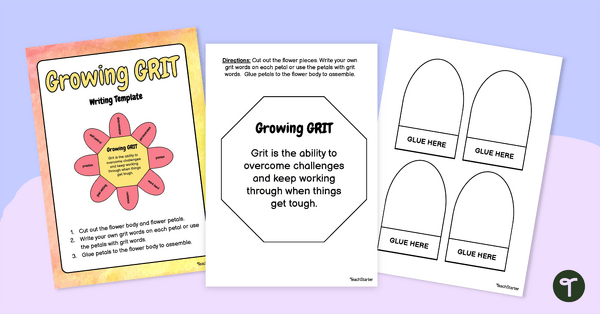
Growing GRIT Writing Template
Encourage students to think about what grit is as well as words that describe grit with this craft template.
- Plus Plan
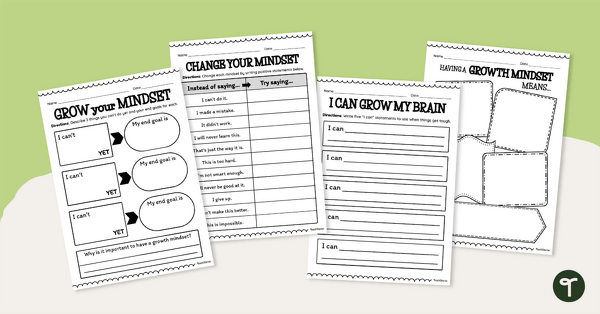
Growth Mindset Worksheet Pack
Help students change their mindset to a growth mindset with this set of worksheets.
- Plus Plan
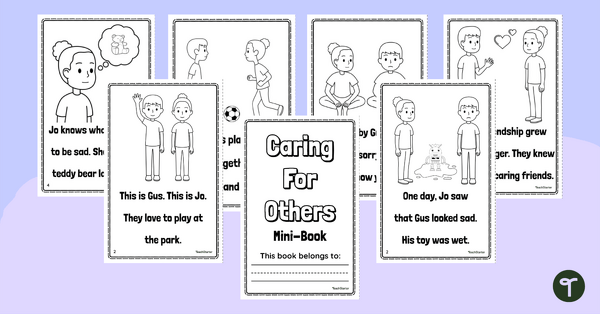
Caring for Others – Printable Empathy Book
Unlock the magic of empathy by giving your students a mini-book about how to connect, understand and make a difference through the simple act of caring.
- Free Plan
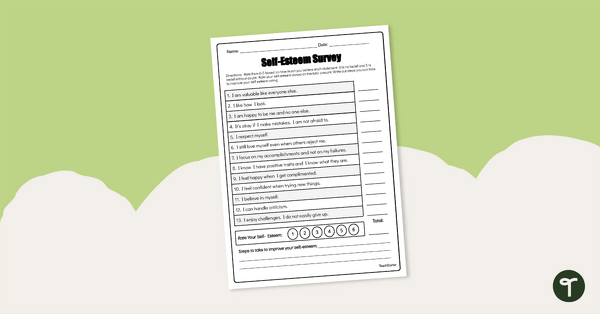
Self-Esteem Survey Worksheet
Explore self-esteem with your students with this printable self-esteem survey.
- Plus Plan
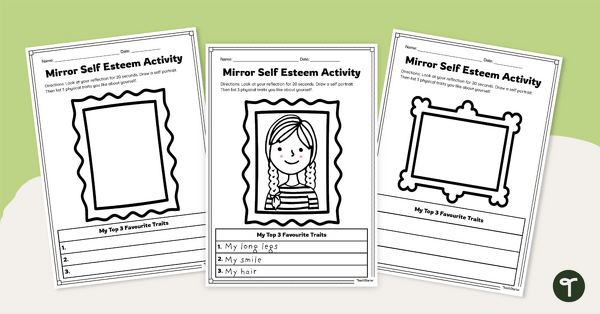
Mirror Self-Esteem Activity
Explore self-image and self-esteem with this mirror worksheet for students.
- Plus Plan
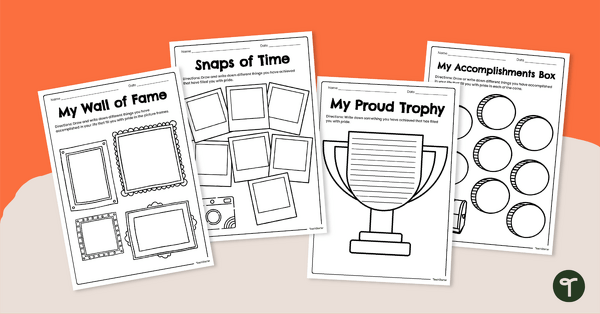
My Accomplishments Worksheets
Celebrate your students' achievements and accomplishments with these self-esteem boosting worksheets!
- Plus Plan
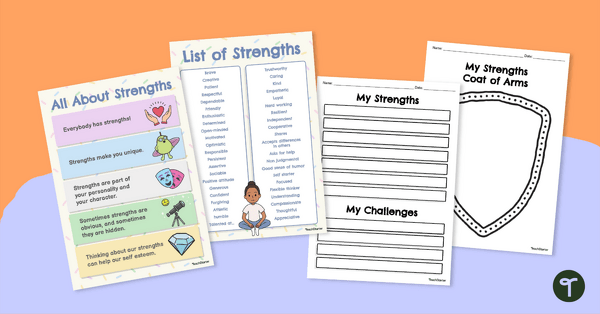
All About Strengths Poster and Worksheet Pack
Help your students identify their personal strengths and weaknesses with this poster and worksheet pack.
- Plus Plan
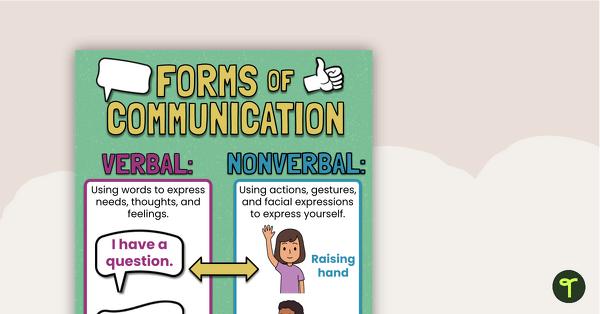
Verbal and Nonverbal Communication Poster
Teach your young students the key to communication by starting with the basics — the difference between verbal and nonverbal communication methods.
- Plus Plan
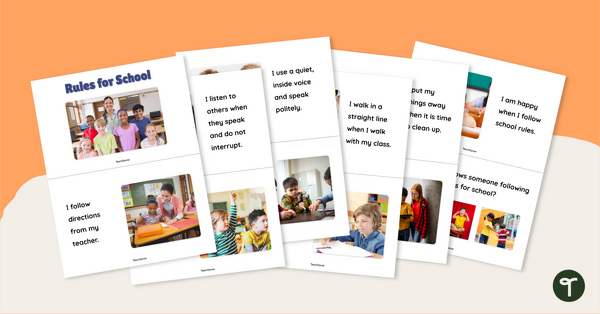
Rules for School Mini-Book
Remind students about appropriate behaviours at school with this printable mini-book.
- Plus Plan
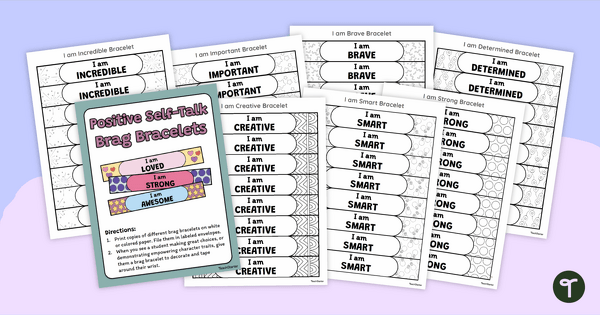
Positive Self-Talk Brag Bracelets
Encourage a positive mindset with a fun set of printable positive self-talk bracelets.
- Free Plan
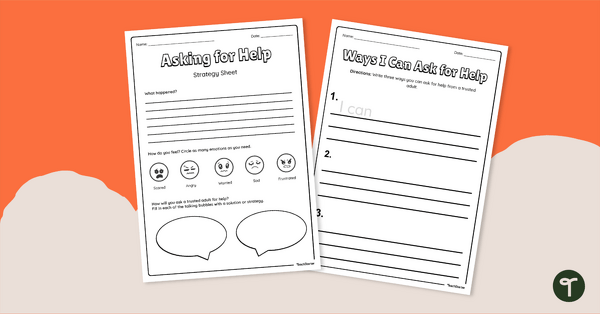
Asking for Help Strategy Sheets
Help students work through a difficult situation and how to ask for help with these asking for help strategy sheets.
- Plus Plan
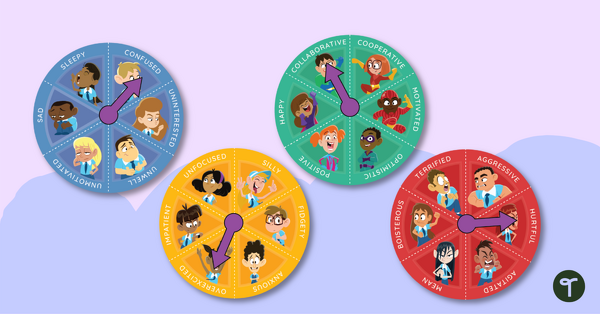
Emotional Self-Regulation – Student Mood Meter
Allow your students to communicate how they are feeling using a non-verbal, desk-sized mood meter.
- Plus Plan
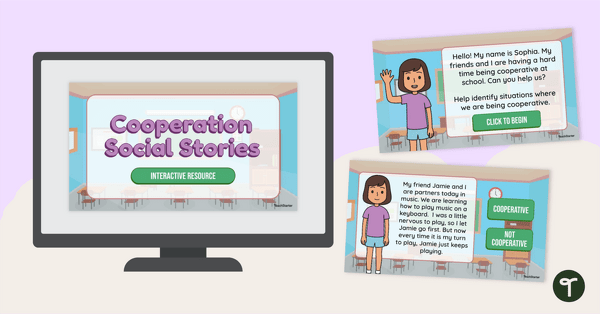
Cooperation Social Stories - Interactive Activity
Help your students differentiate between uncooperative and cooperative behaviour in social situations with an interactive activity.
- Plus Plan
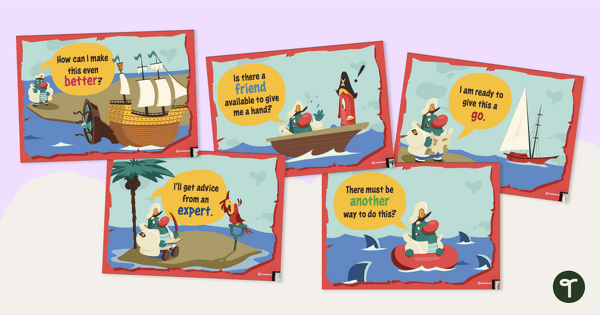
Are We There Yet? – Growth Mindset Progress Tracker
Help your students develop a growth mindset by reflecting on their learning progress with this progress tracking chart.
- Plus Plan
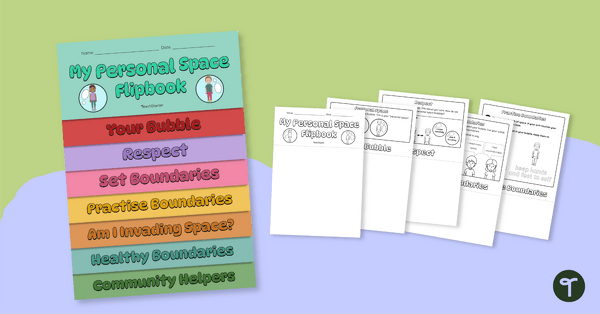
Personal Space Flipbook
Explore the concept of personal space and how it keeps us safe with this activity flipbook.
- Plus Plan
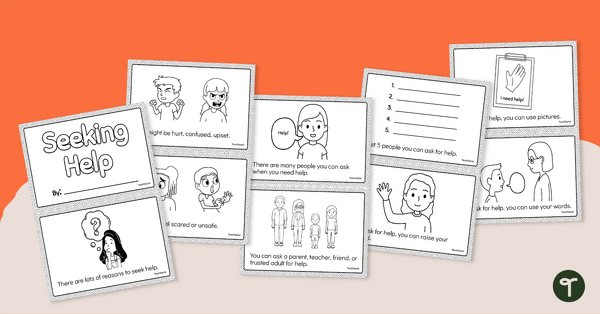
How to Seek Help Mini-Book
Learn all about why, how and when you might seek help with this printable mini-book.
- Plus Plan
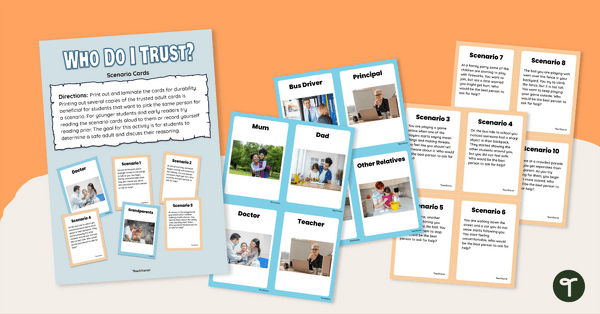
Trusted Adult Scenario Task Cards
Help students understand who is in their trusted adult network and who to go to for help.
- Plus Plan
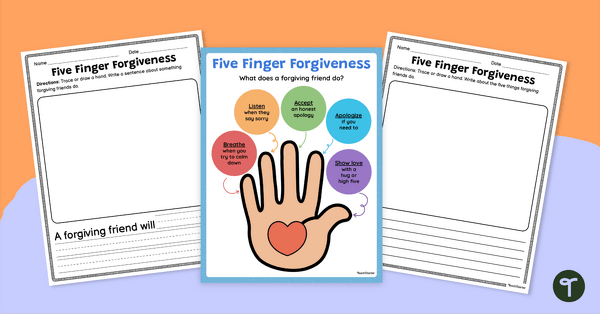
Five Finger Forgiveness – Poster and Writing Activity
Teach your students how to forgive others in order to keep and maintain relationships with this poster and writing prompt.
- Plus Plan
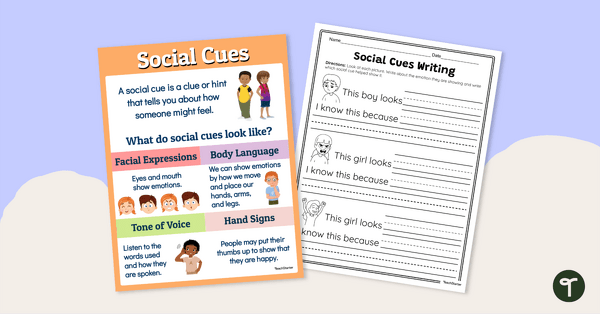
Social Cues Poster and Worksheet
Teach your students about different social cues with this printable poster and worksheet.
- Plus Plan
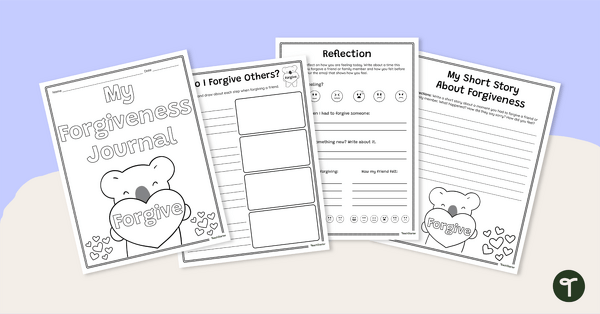
My Forgiveness Journal – SEL Worksheets
Teach students about the importance of forgiving others with this printable forgiveness journal.
- Free Plan
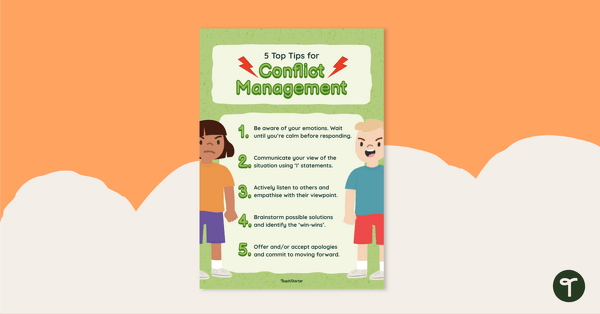
Conflict Resolution Tips Poster
Display some top tips for solving playground conflicts with this colourful and informative classroom poster.
- Plus Plan

Mother's Day Card – Mindful Colouring
Print a beautiful card to colour and give to your mum on Mother’s Day.
- Plus Plan
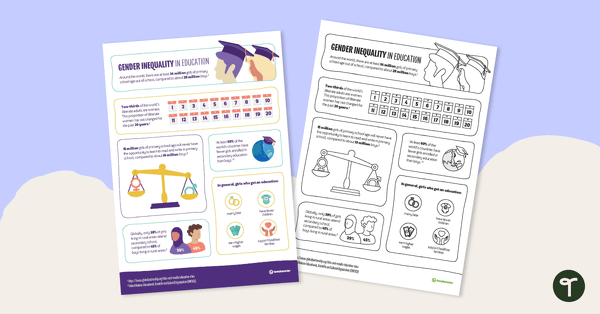
Gender Inequality in Education Infographic Poster
An infographic displaying important facts and statistics about gender inequality in education.
- Plus Plan
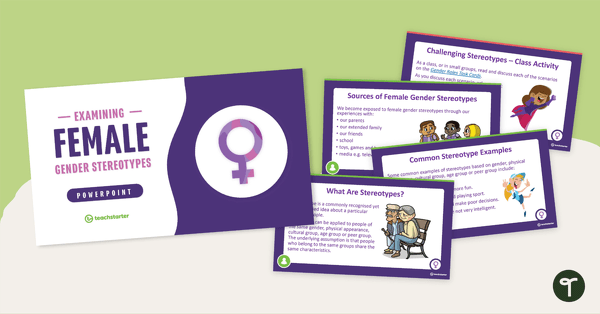
Examining Female Gender Stereotypes PowerPoint
A 14 slide editable PowerPoint template to use when examining female gender stereotypes with your students.
- Plus Plan
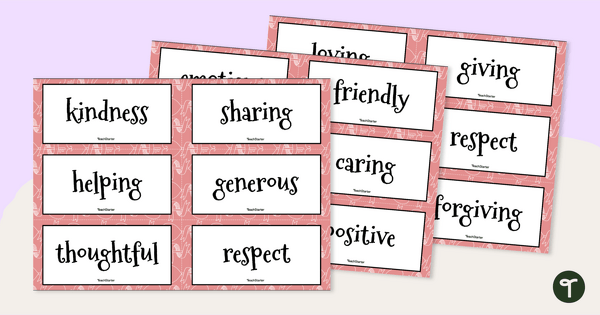
Kindness Words - Word Wall
Print a set of kindness word cards to use during your social-emotional learning lessons.
- Plus Plan
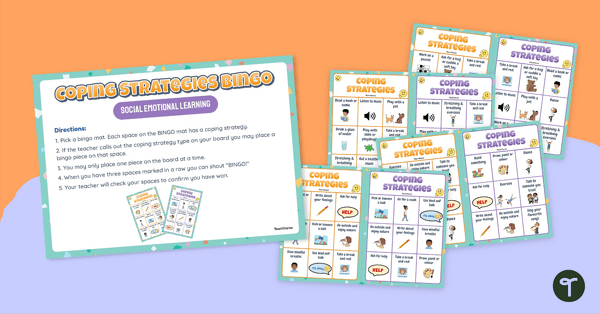
Coping Strategies Bingo
Identify and remember different coping strategies that can be used at home or in the classroom when feeling overwhelmed with an emotion.
- Plus Plan
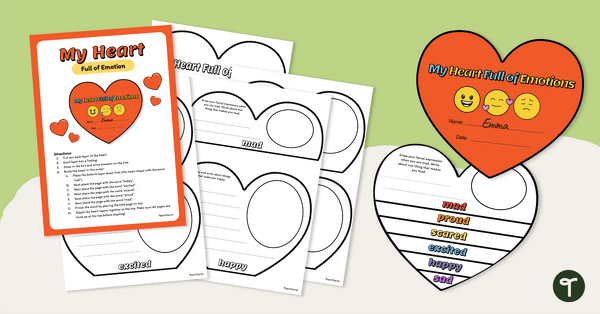
My Heart Full of Emotions Activity
Promote mindfulness and self reflection by writing out descriptions of different emotions.
- Plus Plan
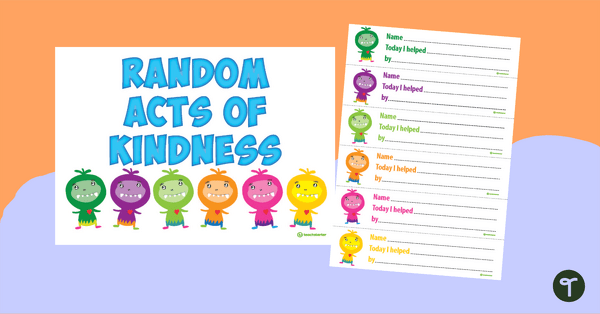
Random Acts of Kindness Display
A display to highlight any random acts of kindness.
- Plus Plan
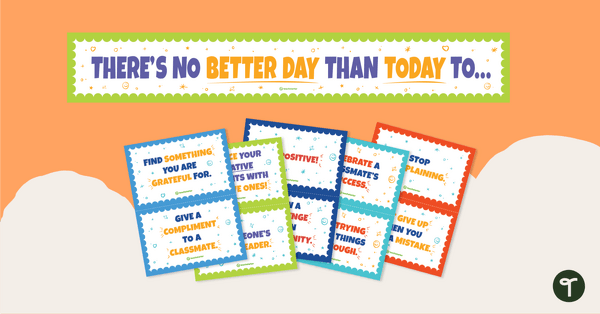
Social and Emotional Skills Classroom Display
A classroom display to use when working on social-emotional skills.
- Plus Plan
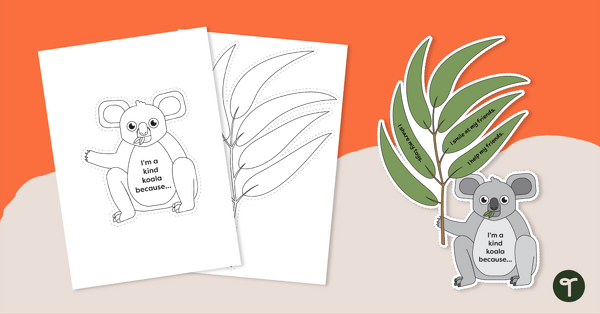
'I'm a Kind Koala Because...' Template
A kind koala template to encourage students to think about all the ways to be kind.
- Social Emotional Learning Templates
- Social Emotional Learning Worksheets
- Social Emotional Learning Posters
- Social Emotional Learning Games
- Social Emotional Learning Labels, Signs & Decorations
- Social Emotional Learning Teaching Presentations
- Social Emotional Learning for Preschool/Kindergarten
- Social Emotional Learning for Foundation Year
- Social Emotional Learning for Year 1
- Social Emotional Learning for Year 2
- Social Emotional Learning for Year 3
- Social Emotional Learning for Year 4
- Social Emotional Learning for Year 5
- Social Emotional Learning for Year 6
- Social Emotional Learning for Year 7